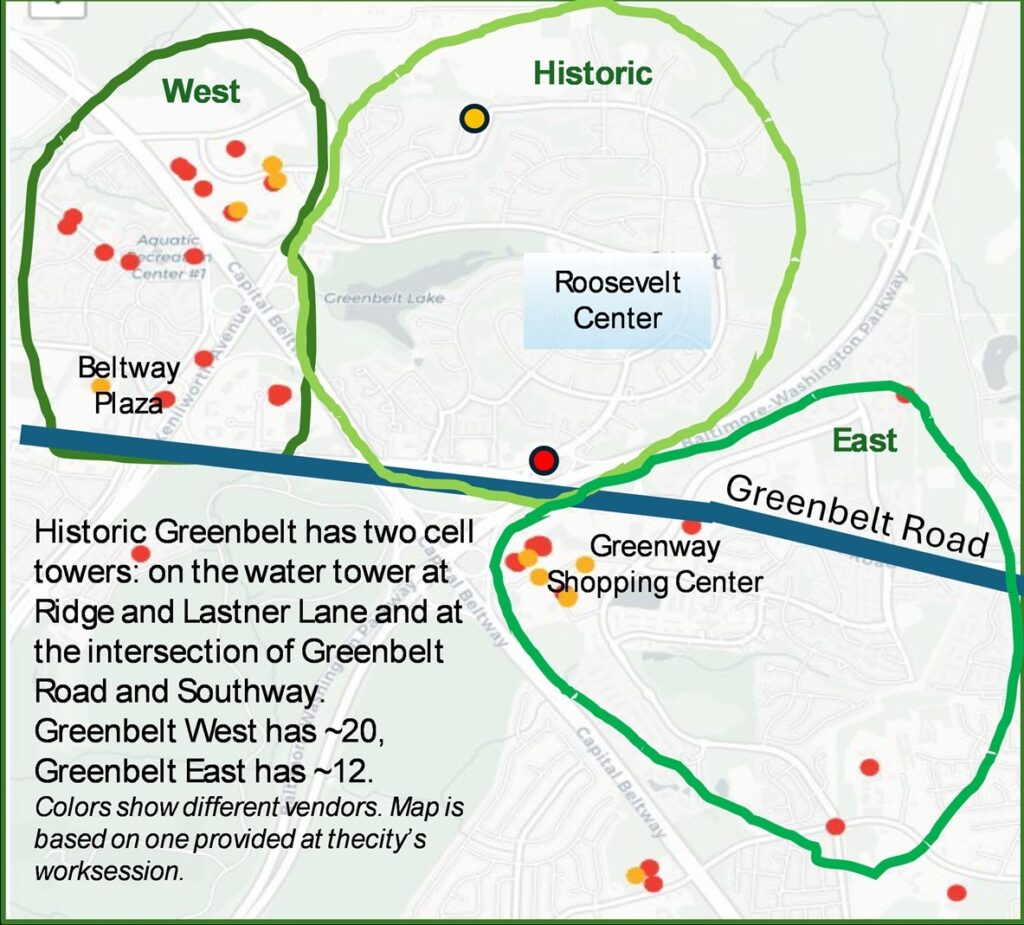The Greenbelt City Council addressed administrative issues at its August 10 meeting. Mayor Emmett Jordan initiated a debate on the possibility of moving the scheduling of future worksessions from the end of regular (often long) meetings to a worksession, feeling that council would have a fresher perspective. Council and staff were amenable (with one exception) to this suggestion, with the understanding that it would not be an official decision (which can be made only at a council meeting).
The consensus was that the end of the worksession would be best and limited to 10 to 15 minutes. This schedule would then be voted on as a consent item at the next meeting. This new approach will likely be voted on in September and judged for its effectiveness as time goes on, with Councilmember Ric Gordon advising a “case-by-case basis.”
Councilmember Rodney Roberts was unreceptive to the suggestion, feeling that it violated council rules of procedure and lessened transparency with the public, citing that “a council decision is a council decision,” regardless of the setting.
Stakeholders
Another issue was a revised list of stakeholders developed by Councilmember Judith Davis. In an effort to better organize this now-lengthy list, Davis split the stakeholders into categories based on their need for meeting frequency. Those that should meet annually included the city’s homeowners associations and cooperative owners associations and other residential representatives, advisory board chairs, county council and at-large members, school board members and the State Highway Administration.
For meeting biannually, the list included Beltsville Agricultural Research Center, Beltway Plaza, Goddard Space Flight Center, Greenbelt Park and the National Park Service, Greenway Center, religious and spiritual organizations, Roosevelt Center merchants and the newly-formed Greenbelt Business Alliance.
Those to meet as needed included apartment complexes, Comcast and Verizon, Greenbelt office parks, Greenbelt watershed groups, hotels, Pepco and WSSC, Prince George’s County Economic Development Corporation, the Roosevelt Center owner, University of Maryland, WMATA, and the County Department of Public Works and Transportation. Newly elected and appointed officials, like the county executive, school board CEO and state’s attorney, were, by the meeting’s close, judged most effectively placed in the brief presentation section of regular meetings.
Council was very receptive to this new organization of stakeholders, with Davis expressing that it will provide more time for council to focus on other pressing issues, like police reform. Jordan and resident Molly Lester hoped for more meetings with county and state officials.
Work Plan
Derived from a council retreat held last February, the work plan lays out a series of goals that Jordan said would set “our plan as a group,” making council’s efforts more productive and fostering “support for one another.” The city’s financial consultant, Raftelis, was instrumental in collecting input from council and developing what Jordan called a working document. The major outcome areas were: enhancing the sense of community; ensuring sustainable economic development; improving transportation opportunities; improving and enhancing public safety; promoting quality of life, health and well-being for all residents; maintaining and investing in infrastructure; and supporting equity and inclusion within Greenbelt.
Council used the 2021 city council work plan as a springboard. Many of its outcome areas are still in progress, such as the Greenbelt Road streetscape, opposition to the SC Maglev, saving the Forest Preserve, acquiring the Armory, recreation amenities for Greenbelt West and Covid-19 relief.
The work plan lays out in detail what success looks like for each of its outcome areas, alongside newly phrased, proposed success statements. There is also a list of council top priorities (including staff morale, focus on equity and inclusion, and increasing the tree canopy) and other priorities (such as addressing stormwater issues and economic development). The plan ends with next steps, the main one being a staff review of this report leading to later council adoption, with Jordan calling the current document an important step.
Office Space
Interim City Manager Timothy George said that the office space reallocation study should be available in the next couple of weeks, with recommendations available for council review. He also said that staff could create a request for proposals in order to obtain a consultant to aid in developing a new community visioning study, the last one being done 10 years ago. The recent American Rescue Plan Act surveys would be used as the framework, since much valuable community input was collected.
Resident Bob Rand hoped for the creation of both an Equity, Diversity and Inclusion, and a Health and Wellbeing Advisory Board for the city. City Clerk Bonita Anderson said that the city’s Board of Elections will meet again in September to discuss both the 2021 and upcoming 2023 city elections.



